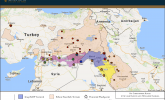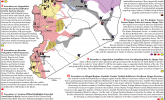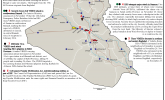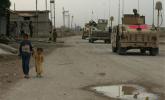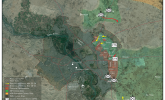November 23, 2016 - Caitlin Forrest
Taliban militants’ military successes during their 2016 campaign, Operation Omari demonstrate requirements for U.S. policy in Afghanistan. The ANSF is incapable of securing major population centers like Lashkar Gah or Kunduz cities or increasing government-controlled territory without significant U.S. support. The ANSF remains highly dependent on current levels of U.S. support to regenerate units and secure government-controlled territory. Resolute Support Commander General John Nicholson stated on September 23 that the Afghan government controls or heavily influences 68- 70% of the population, and Taliban militants control 10% of the population, leaving roughly a quarter of the country contested. The continued expansion of ungoverned spaces in Afghanistan allows global extremist networks like al Qaeda and ISIS and their allies to carve out sanctuaries from which to target the U.S. and its national security interests.




